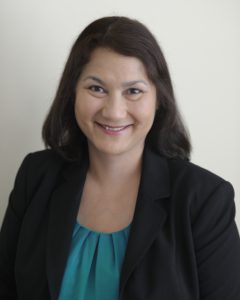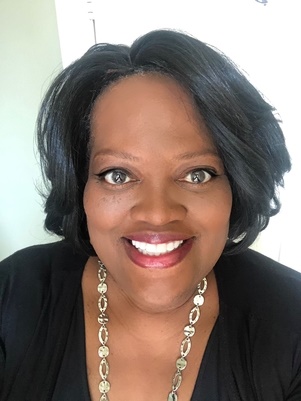Research Advocacy
Ovarian cancer survivors can shape the future of ovarian cancer research by serving as research advocates. Research advocates help funding agencies and scientists understand and prioritize the questions that are important to the ovarian cancer community. Having the input of survivors ensures that research is patient-focused and truly meets the needs of our community. Research advocates also report back to the community, sharing what they have learned, so that everyone can benefit from scientific progress.
Read reports from our research advocates
2021 Reports
- Report from the 2021 Society for Gynecologic Oncology Annual Meeting (Annie Ellis, Kathleen Maxian)
- Report from the 2021 American Association for Cancer Research Annual Meeting (Elise Daniel, Annie Ellis)
2019 Reports
- Report from the 2019 Accelerating Anticancer Agent Development and Validation Workshop (Annie Ellis)
- Report from the 2019 Society for Gynecology Oncology Meeting on Women’s Cancer (Annie Ellis)
2018 Reports
- Report from the 12th Annual Ovarian Cancer Research Symposium, presented by The Rivkin Center for Ovarian Cancer and the American Association for Cancer Research (Susan Leighton)
- Report from the American Society of Clinical Oncology Annual Meeting (Annie Ellis)
- Report from the 2018 American Association for Cancer Research Annual Meeting (Annie Ellis, Rebecca Esparza, Marcie Paul)
- Report from the 2018 Society of Gynecologic Oncology Annual Meeting on Women’s Cancer (Annie Ellis and Susan Leighton)
2017 Reports
- Report from the 2017 NCI Patient Advocate Steering Committee
- Report from the 2017 American Association for Cancer Research Special Conference Addressing Critical Questions in Ovarian Cancer Research and Treatment (Annie Ellis)
- Report from the 2017 Society of Gynecologic Oncology Annual Meeting on Women’s Cancer (Annie Ellis)
2016 Reports
- Report from the Biennial Ovarian Cancer Research Symposium, presented by the Rivkin Center for Ovarian Cancer and the American Association for Cancer Research. Poster: Beyond RECIST 1.1 Poster: MAGENTA-Making Genetic Testing More Accessible (Annie Ellis)
- Report from the 2016 Annual Meeting of the Society for Gynecologic Oncology
- Report from the AACR Conference Advances in Ovarian Cancer Research: Exploiting Vulnerabilities
2015 Reports
- Report and slides from Ovarian Cancer Endpoints Workshop hosted by the Food and Drug Administration (Annie Ellis and Peg Ford)
- Report from the 2015 American Society of Clinical Oncology (ASCO) meeting (Katie Hoody)
- Report from the 2015 American Society of Clinical Oncology (ASCO) meeting (Laura Koontz)
- Report from the 2015 American Association for Cancer Research Annual Meeting (Seana Roubinek)
- Report from the 2015 Annual Meeting of the Society for Gynecologic Oncology (Laura Koontz)
2014 Reports
- Report from the November 2014 Gynecologic Cancer Session of the Chemotherapy Foundation Symposium (Annie Ellis)
- Report from the 2014 Marsha Rivkin Ovarian Cancer Symposium (Annie Ellis)
- Report from the 2014 American Society of Clinical Oncology (ASCO) meeting (Laura Koontz)
- Report from 2014 Annual Meeting of the Society for Gynecologic Oncology (Robin Cohen)
- Report from the 2014 American Society for Clinical Oncology (ASCO) meeting
2013 Reports
- Report from the 2013 American Association of Cancer Researchers (AACR) Meeting (Susan Leighton)
- Report from the June 2013 Society for Nuclear Medicine and Molecular Imaging Advocate (Laurel Pracht)
- Report from the 2013 Gynecologic Oncology Group meeting of the Cancer Prevention and Control Committee (Laurel Pracht)
2012 Reports
- Report from the September 2012 DoD Ovarian Cancer Research Program Consumer Review (Annie Ellis)
- Report from the March 2012 Annual Meeting of the Society of Gynecologic Oncology (Annie Ellis)
- In this webinar, the Alliance reports on key research presented at the 2012 American Society of Clinical Oncology (ASCO) Annual Meeting
Who are research advocates?
Research advocates are survivors of ovarian cancer just like you. While some of them have a background in science, most do not! They learn “on the job” and by working with more experienced advocates. Research advocates who represent OCRA serve by invitation only.
Meet some of our current advocates

Annie Ellis was diagnosed with ovarian cancer in 2004 at the age of 40 and first got involved with the Ovarian Cancer Research Alliance in 2006. Since that time, she’s served on various committees, participated in special projects and presented her story as part of the Survivors Teaching Students: Saving Women’s Lives® program. Annie has been invited to speak at a number of national meetings about her work teaching students and as a research advocate. Annie currently volunteers with SHARE’s Ovarian Cancer Helpline and New York Presbyterian’s Woman to Woman program, and serves as a consumer peer reviewer for the Department of Defense Ovarian Cancer Research Program.

Susan Leighton works with the Ovarian Cancer Research Alliance as the National Program Director of the Survivors Teaching Students: Saving Women’s Lives® Program. Susan holds an MA in Psychology from Louisiana Tech University, is a veteran, a retired personnel management specialist and a volunteer for several community organizations. In 1997, she was diagnosed with Stage IIIC ovarian cancer and had a recurrence in 2005. Since that time, she has served on numerous panels as a research advocate – including through the Department of Defense Ovarian Cancer Research Program and the Patient Centered Outcome Research Institute. As a patient advocate she is a founding member of the Lilies of the Valley, a large ovarian cancer support and awareness group located in her hometown of Huntsville, Alabama. Her advocacy efforts extend beyond awareness, education and research to legislation. Susan is a member of OCRA’s Advocate Leaders program and has brought the voice of the ovarian cancer patient population to Capitol Hill on numerous occasions. In 2011, she testified before the Senate Appropriations Subcommittee on Defense in support of funding for the Department of Defense Ovarian Cancer Research Program.

Kimberly Richardson has been active since treatment in various forms of advocacy. As an advocate leader for OCRA, she speaks with legislators on the importance of funding for ovarian cancer research, she hosts cycling and running fundraisers for ovarian cancer awareness and speaks at hospitals and community health fairs on the need for better screening tests to prevent late stage diagnoses. As an ambassador for the National Coalition for Cancer Survivorship (NCCS), she developed a strategy for round table discussions on the role of patients and public involvement in translational research. Ms. Richardson also represents the American Association for Cancer Research (AACR) through its Scientist<>Survivor program as a research associate. In 2018, she presented at the association’s Disparities meeting on the treatment of African American women as survivors of rare ovarian cancer and at its recent annual conference during its poster session on Rare Ovarian Cancer Survivors as Advocates. In addition, she was a panelist at Morehouse University with researchers at the conference on disparities amongst minorities and their hesitancy in participating in clinical trials. Recent appointments included her role as a Project Coordinator for a PCORI Eugene Washington Capacity Building Award to the UI Cancer Center, becoming an ambassador for PCORI, and the ALL of US research program, a collaboration between, Northwestern, NorthShore, RUSH, University of Illinois and University of Chicago that focuses on genetic testing. Ms. Richardson presented on advocacy at the OCRA Annual Conference and was selected as a Consumer Peer Reviewer for the Department of Defense, Ovarian Cancer Research Program. In 2019, she presented at the University of Illinois at Urbana, WCG and PCORI on the importance of diversity and inclusion in cancer advocacy and cancer research. In 2020, Ms. Richardson organized a city wide event in partnership with FDA’s Oncology Center of Excellence on minority participation in genetic testing and clinical trials, filed a resolution with the Illinois Legislature for the creation of a Gynecological Commission and organized a researcher/survivor summit including six major teaching hospitals and universities in the city of Chicago to bring key stakeholders together to discuss the current gynecological research. Her latest endeavor is the development of the Survivors Advising Scientist Educational Program, a program that creates educational content for survivors and patient advocates who want to learn more about cancer research and scientific inquiry. To access the SASEP program, email sasep@uic.edu
Where do research advocates serve?
Research advocates typically serve as grant reviewers within the federal agencies that fund ovarian cancer research. These include:
- The Ovarian Cancer Research Program (OCRP) at the Department of Defense
- The National Cancer Institute
- The Patient Centered Outcomes Research Institute
- The Food and Drug Administration
Advocates also serve in various capacities outside the federal government, including:
- The NRG Oncology Cooperative Group, a nonprofit committed to promoting high quality clinical trials.
- Institutional Review Boards (IRBs) at academic medical centers conducing ovarian cancer research
This program is supported by a grant from

Help Advance Ovarian Cancer Research
From time to time, Ovarian Cancer Research Alliance partners with other organizations on research projects that will advance our understanding of this disease. Click on the links below to learn about each research initiative.
Massachusetts General Hospital is conducting a study of long term survivors of ovarian cancer. If you were diagnosed with stage III or stage IV ovarian cancer eight or more years ago. Learn more about the study. This project is funded by the Department of Defense.
Have you or your family members been affected by breast, ovarian, prostate, melanoma, pancreatic or other related cancers that are or may be due to an inherited reason? The ABOUT Network is the first national effort to invite people from across the United States to share their experience with hereditary breast, ovarian, prostate, melanoma, pancreatic and related cancers. Continue reading more information.